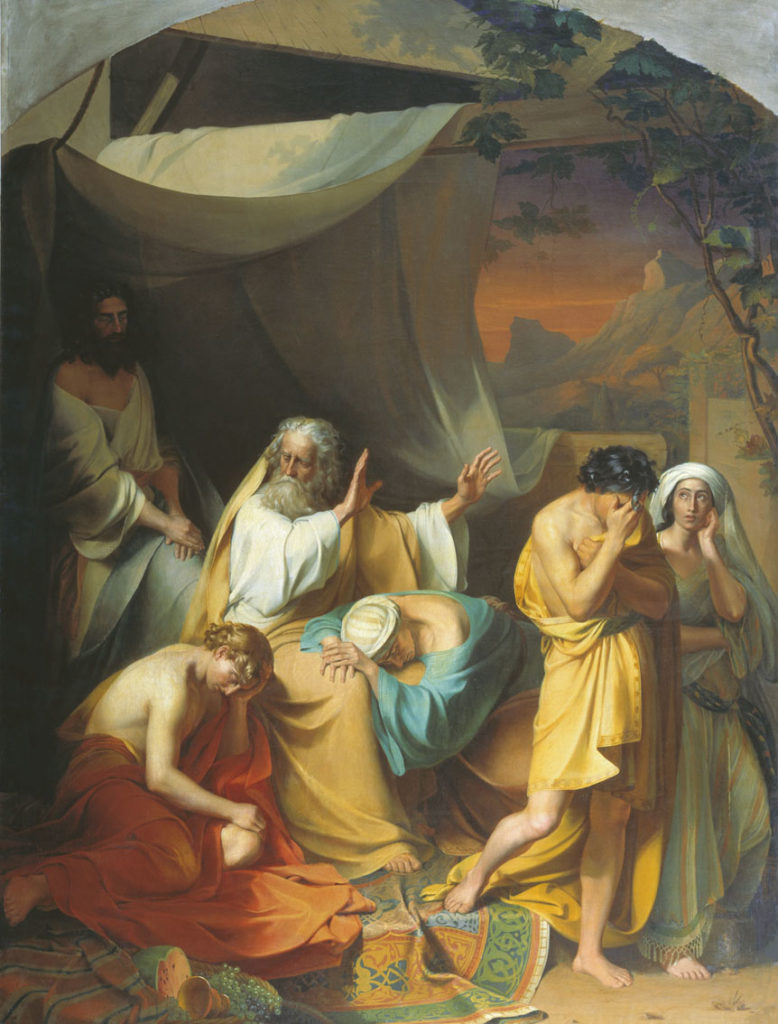Over the centuries, some people have tried to prove that the black race is destined to be submissive because of Noah’s words about his son Cam, who was the father of African peoples. Let us examine the text of Scripture itself, and then I will give you three reasons why it does not determine how the peoples of Africa should be perceived and treated. Remember that Noah had three children: Sem, Cam, and Jafet.
Genesis 9: 21-25:
- While drinking wine.
- He got drunk [Noah] and undressed in his tent; Canaan’s father Cam.
- Seeing his father’s nudity.
- Told his two brothers outside.
- Then Sem and Jafet took a coat.
- Put it on their shoulders and.
- Walking on their backs.
- Their deviant faces.
- Covered their unused father’s nudity.
- When Noah was awakened from his wine.
- He knew what his youngest son had done to him.
- Then he said.
- “Damn or [or will it be?] Canaan; be a servant of your brethren’s servants?.
Now notice three things
First, Noah seizes this opportunity of his son Cam’s sin and uses it to make a prediction about the prosperity of Cam’s youngest son, Canaan. Basically, the prediction is that the Canaanites would eventually submit to the descendants of Sem and Japheth.
Now, there are a lot of questions to ask here. But I only have time to highlight some that are relevant to our main point. Cam had four children according to Genesis 10. 6. ” The sons of [were] Cam: Cuxe, Mizraim, Pute and Canaan. “In general, Cuxe is probably the ancestor of the Ethiopian people; Mizraim is the ancestor of the Egyptians; and Pute is the ancestor of the peoples of North Africa, the Libyans. But Canaan is the only one of the four children who is not an ancestor of African peoples. Genesis 10. 15?18 quotes the descendants of Canaan 😕 Canaan begat Sidón, his firstborn, and Het, and the Jebuseos, Amorites, Gergases, Heveos, Arqueitas, Seineos, Arvadeans, Zematus and Hamateus . . . All these villages were inhabitants of Canaan and its surroundings, not Africa, and Noah’s prediction was fulfilled. when the Canaanite nations were expelled by the Israelites because of their wickedness (Deuteronomy 9. 4-5). The curse, therefore, is not about the African people, but about the Canaanites.
Second, noah’s foretold nation does not dictate how God’s people should treat the Canaanites individually. For example, five chapters later, in Genesis 14:18, Abraham, a descendant of Seven, meets a native Canaanite named Melchizedek, who was a righteous man. man and a “priest of the Most High God,” and who blessed Abraham. Abraham gave him the tithing of his loot. Therefore, even the fact that God commands the judgment of wicked nations does not tell us how we should treat people in the same nations.
Third, in Genesis 12, God sets in motion a great plan of abandonment for all nations, to save them from this and every other curse of sin and judgment. Call Abram to all nations, make a pact with him and promise: I will bless those who bless you and curse those who curse you; Will all the families of the earth be blessed in you? ? All the families on earth? includes Canaanite families.
So what we see is that with Abraham, God puts into action a plan of redemption that brings any curse upon anyone who receives Abraham’s blessing, that is, the forgiveness and acceptance of God that comes through Jesus Christ, the posterity of Abraham (Galatians 3:13-14).
[dt_call_to_action content_size?normal?text_align?left?background?fantasy?line?true?style?2?animation?
Is this text an excerpt from the article?8 biblical reasons to say, “Racism no!?

